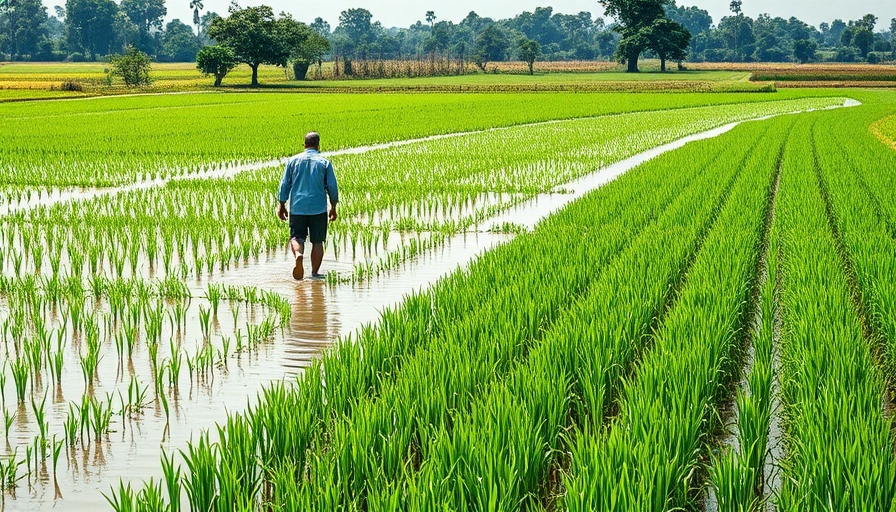
The Impending Crisis: The Impact of Rising Temperatures on Global Agriculture
As the climate crisis accelerates, the implications for global agriculture are more severe than ever. A groundbreaking study by researchers at Aalto University highlights how rising temperatures threaten our major crops, with potentially devastating consequences for global food security. The research, which focuses on thirty of the world’s most vital crops, reveals a dire future as the safe climatic spaces for these crops shrink in response to global warming.
Understanding the Safe Climatic Space
The study outlines the concept of 'safe climatic space'—a defining climatic zone where crops grow optimally. This Goldilocks zone is modelled based on crucial factors like temperature, precipitation, and aridity. As global temperatures increase, these safe spaces are predicted to migrate away from the equatorial regions, where many vital crops are currently cultivated. At just 1.5 degrees Celsius of warming, we could see a threat to up to half of cropland crops in lower latitude areas, which are often among the poorest nations most vulnerable to climate impacts.
Who is Most at Risk?
Regions near the equator, particularly in Sub-Saharan Africa and South Asia, will suffer the most significant losses in crop diversity and food production. With a rapidly growing population in these areas, the situation is critical; researchers note that food security could be jeopardized, leaving many without adequate access to calories or protein. Sara Heikonen, lead author of the study, emphasizes that the fallout of climate change is unequally distributed, hitting the countries least responsible for emissions the hardest.
The Ripple Effects Beyond Food Security
The economic ramifications of declining crop yields cannot be overstated. As agricultural production diminishes, the resulting food scarcity is likely to exacerbate poverty, trigger conflict over resources, and prompt mass migrations. Stefan Schmitz from the Crop Trust warns that declining productivity is already evident, having fallen by 21% in recent decades due to climate-related factors. The stakes are high; how we respond to these challenges will shape entire communities and nations.
Exploring Resilience: The Case for Crop Diversity
While the situation seems dire, the answer may lie in diversifying the crops we cultivate. Lifting constraints on the types of crops grown can foster resilience in agricultural systems. As highlighted by experts at the Crop Trust, 'the importance of diversity is recognized in international treaties and commitments to Sustainable Development Goals.' By investing in both traditional and lesser-known crops—such as millets and legumes—we can improve food security and promote more sustainable agricultural practices. Increasing crop variety can not only enrich diets but also help create a buffer against climate change.
Global Collaboration: A Call to Action
International cooperation is more crucial than ever to develop adaptive agricultural practices for vulnerable regions. Heikonen affirms the need for collaborative efforts in innovation, research, and support for agricultural strategies that address climate-related challenges. We must champion both resilience in high-latitude agricultural systems and the adaptation of tropical agriculture to ensure a stable food supply for generations to come.
Your Role in Combating the Crisis
As a global citizen, understanding and advocating for sustainable agricultural practices can create meaningful change. Support organizations that work towards preserving crop diversity, engage in local initiatives focused on sustainable farming, and educate others about the impact of climate change on food security. Every action counts in our collective fight against climate change.
Conclusion: Necessity for Urgent Action
Climate change represents a looming threat not only to crop diversity but to the very fabric of global food security. Without immediate and effective interventions, we risk deepening the crisis. It is imperative that individuals, communities, and nations rally together to confront this challenge, working collectively to safeguard our agricultural futures.
 Add Row
Add Row  Add
Add 




Write A Comment